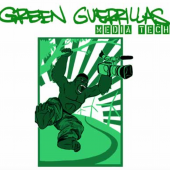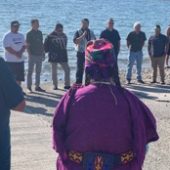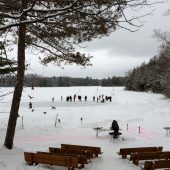
Abstract: The Green Guerrillas Youth Media Tech Collective, a community organization based in Ithaca, New York, set out to define sustainability in their own terms by giving a diverse group of local adolescents the opportunity to engage subjects of environmental and social justice through digital media production within the auspices of a unique afterschool job-training program. Interviews with youth participants and adult mentors illustrate key concepts for environmental and sustainability educators desiring to facilitate engaging learning environments utilizing multimedia. Excerpts of their interviews provide a lens into the workings of a non-formal educational environment that explicitly embraced media literacy, media arts production, and community engagement to advocate for issues of justice and sustainability while facilitating opportunities for ecological learning. This case study highlights the potential of digital storytelling to foster students’ knowledge retention, connection to nature, sense of empowerment, and ability to create positive change in their communities.
Continue Reading
An Indigenous salmon re-joining ceremony on the dammed Columbia River inspires a broader understanding of the potential for human participation in healthy natural systems.
Continue Reading
Abstract: In this article, we examine the collaborative efforts of university-employed folklorists with Waaswaaganing Anishinaabe (Lac du Flambeau Ojibwe) teachers and community leaders in what is currently known as northern Wisconsin. Focusing on the Ojibwe Winter Games—an annual weeklong event in February for middle school students that aims to revitalize traditional competitive games—we suggest that decolonizing sustainability education requires recognition that sustainability is pluralistic and culturally specific. Educators must facilitate a restorative systemic shift towards Indigenous sustainabilities through Indigenous-centered pedagogies and methods of knowledge production. In order to accomplish such a shift, our responsibility as academics and public folklorists must always be to the Indigenous communities with whom we work. We explore the role of non-Indigenous collaborators in Indigenous-led decolonization efforts, in developing educational systems that support and sustain Indigenous knowledge systems, and in the repatriation and rematriation of land, language, and culture.
Continue Reading
Abstract: Healing a world on the brink of eco-social collapse requires an understanding of how planetary health has declined, how sustainable societies worked before, and how we can restore them. Global colonizing processes established a worldview of economic domination and competition that has had detrimental impacts upon our social and environmental systems. Archeological and mathematical studies of the rise and fall of human civilizations concluded that egalitarian societies with low environmental exploitation were the longest lasting in human history, and that high economic stratification, and/or overexploitation of resources were precursors to societal collapse. Indigenous community systems were relatively egalitarian and environmentally sustainable. Hypothetically, if we use Indigenous eco-social systems as a guide for community planning, then eco-social collapse can be averted, and eco-social resilience and sustainability can be restored. A framework of Indigenous principles and practices is included, with examples of goals, activities and indicators.
Continue Reading